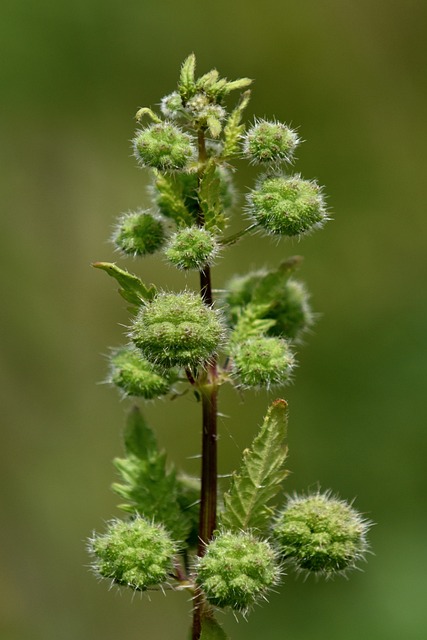As of early 2023, THCA (tetrahydrocannabinolic acid), the non-psychoactive precursor to THC, maintains a nuanced legal status in Iowa. While recreational cannabis remains illegal, THCA is permissible under certain medical conditions, aligning with regulations that allow hemp-derived products with less than 0.3% THC. Users should be aware that THCA can convert to THC, potentially inducing psychoactive effects. Iowa's legal framework for THCA is distinct from states with broader cannabis laws, with the state emphasizing the therapeutic benefits of THCA, including anti-inflammatory and pain-relief properties. It's essential for consumers to navigate this landscape carefully, considering individual health factors and product purity, and to consult healthcare professionals before use. Staying informed about Iowa's specific medical cannabis guidelines is crucial for responsible and legal usage of THCA products.
exploration of THCA flower’s side effects and its legal standing in Iowa is crucial for potential users. This article delves into the therapeutic potential and consumer risks associated with THCA, a non-psychoactive cannabinoid found in hemp and marijuana plants. We will navigate the intricate legality of THCA flower across the United States, emphasizing its status in Iowa. Understanding the nuances of THCA legal standing is essential for informed decision-making within the state’s regulatory framework. Join us as we dissect the complexities surrounding this emerging compound and provide a user-centric guide to safely exploring its effects.
- Exploring THCA Flower Side Effects and Legality in Iowa
- Understanding THCA: Potential Benefits and Risks for Consumers
- THCA Flower Legal Status Across the United States with a Focus on Iowa
- Navigating the Effects of THCA Flower: A Comprehensive Guide for Users in Iowa
Exploring THCA Flower Side Effects and Legality in Iowa
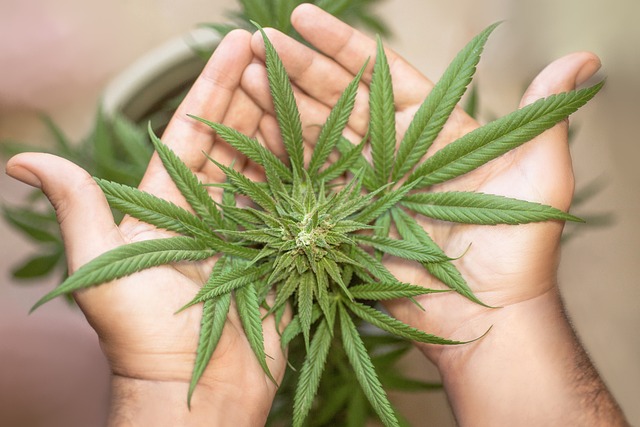
Investigating the effects of THCA flower, particularly its side effects, is a topic of growing interest as more regions explore cannabis legislation. In Iowa, the legal status of THCA flower has been a subject of debate and legislative consideration. As of the knowledge cutoff in 2023, THC (tetrahydrocannabinol), the psychoactive component of cannabis, is illegal for recreational use in Iowa, with CBD products allowed under certain conditions. However, THCA, which is non-psychoactive and found in raw cannabis plants or flowers, exists in a legal gray area. This distinction is crucial as THCA is the precursor to THC and has different effects and legal considerations.
While THCA is not psychoactive like its counterpart THC, it is still a cannabinoid that interacts with the body’s endocannabinoid system. Consumption of THCA flower can lead to side effects such as mild psychoactive effects if the THCA is degraded into THC during the decarboxylation process. Users may experience changes in mood, perception, or mild intoxication. Additionally, though less common, some individuals might report dry mouth, red eyes, or increased anxiety. It’s essential for users to understand the legal implications and potential effects of consuming THCA flower products within Iowa’s evolving cannabis landscape. As laws continue to adapt across the United States, the clarity around the use of THCA flower in Iowa remains a point of contention and scrutiny, emphasizing the need for cautious consumption and up-to-date legal knowledge.
Understanding THCA: Potential Benefits and Risks for Consumers
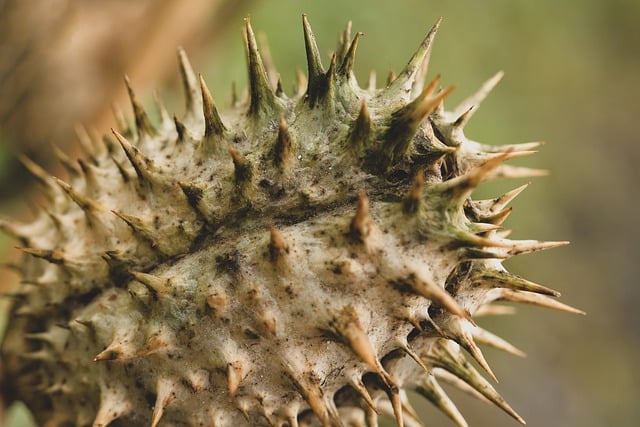
Understanding the nuanced relationship between THCA, or tetrahydrocannabinolic acid, and its potential effects is crucial for consumers, especially as it pertains to legality and usage. THCA is the raw, non-psychoactive precursor to THC, found in cannabis and hemp plants. As of the knowledge cutoff in 2023, THCA’s legal status in Iowa aligns with broader federal and state regulations that distinguish between hemp-derived products containing less than 0.3% THC and their psychoactive counterparts derived from cannabis. This distinction is significant as it opens up a range of potential benefits for consumers. Proponents suggest that THCA may offer anti-inflammatory, neuroprotective, and analgesic properties without the psychoactive effects associated with its decarboxylated form, THC. Research into these claims is ongoing, but early studies and anecdotal evidence are promising, indicating that THCA might be beneficial for managing pain, reducing anxiety, and providing relief from nausea and other gastrointestinal issues.
However, it is equally important for consumers to understand the potential risks associated with THCA consumption. As with any compound, individual reactions can vary greatly due to factors like personal physiology, dosage, and product purity. Side effects may include drowsiness, dry mouth, and potential interactions with other medications. Furthermore, while THCA flower products are legal in Iowa under certain conditions, the regulatory landscape is dynamic, and consumers should always verify compliance with state and federal laws. It is also advisable to consult with a healthcare professional before incorporating THCA into one’s health regimen, particularly if one has underlying health concerns or is taking other medications. By staying informed and adhering to legal guidelines, consumers can better navigate the benefits and risks associated with THCA products.
THCA Flower Legal Status Across the United States with a Focus on Iowa
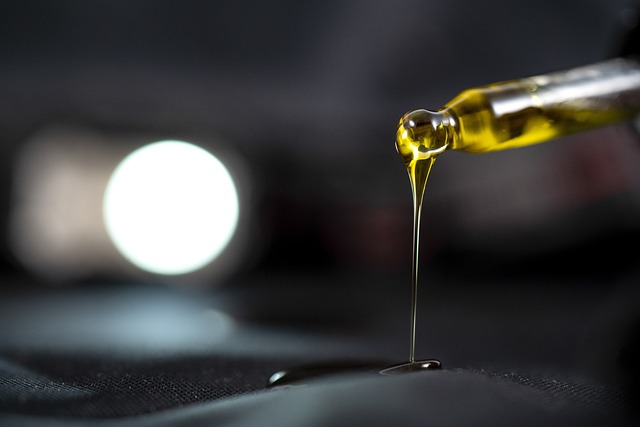
In recent years, the legal status of THCA flower, which is the raw form of tetrahydrocannabinolic acid, a non-psychoactive precursor to THC found in cannabis and hemp plants, has been a subject of increasing interest and regulation. While federal laws classify THCA as a derivative of cannabis, individual states have developed their own frameworks for its use. In Iowa, the legal landscape regarding THCA flower is distinct from states that have fully legalized cannabis and its derivatives. As of my knowledge cutoff in early 2023, Iowa has specific laws concerning hemp-derived compounds, including THCA. The Iowa Department of Public Health has outlined regulations that allow for the sale and use of hemp-derived products containing less than 0.3% THC on a dry weight basis, provided they are compliant with the 2018 Farm Bill and state laws. However, it’s crucial for consumers to be aware that while hemp-derived products like smokable hemp flower with trace amounts of THCA may be available, recreational use of cannabis or any of its compounds remains illegal in Iowa. The state has a medical cannabis program, but this specifically excludes smokable forms of cannabis, and THCA’s therapeutic use is limited to products approved within this framework. Users in Iowa should carefully consider the source and legal compliance of any THCA flower they intend to purchase or consume, as laws and regulations can evolve and may differ across county lines.
Navigating the Effects of THCA Flower: A Comprehensive Guide for Users in Iowa
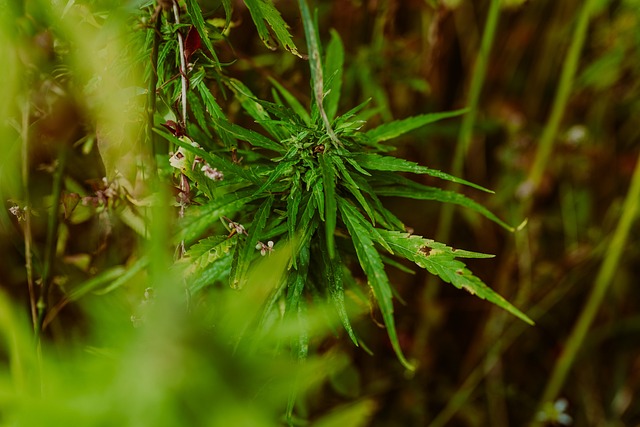
Navigating the effects of THCA flower requires a clear understanding of its legal status and potential impacts on individuals, particularly for users in Iowa. As of the knowledge cutoff date in early 2023, THCA, or tetrahydrocannabinolic acid, the raw cannabis compound that decarboxylates into THC upon heating, is legally permissible in Iowa under specific circumstances. The state allows the use of cannabidiol (CBD) with less than 0.3% THC for medical purposes, and this includes forms of cannabis that contain THCA. It’s crucial for users to adhere to Iowa’s regulations, which vary from other states with more extensive cannabis programs.
Users considering THCA flower should be aware of its distinct effects compared to its decarboxylated form, THC. THCA is known for its potential therapeutic benefits, including anti-inflammatory and pain-relieving properties, without the psychoactive ‘high’ that characterizes THC. However, because THCA can convert to THC when exposed to heat or during the decarboxylation process in the body, users must be cautious about dosage and consumption methods. Side effects of THCA flower may include drowsiness, dry mouth, and potential psychoactive effects if not used appropriately. Users should start with low doses to assess their individual response and consult with a healthcare provider for personalized guidance, especially if they have underlying health conditions or are taking other medications. Understanding the nuances of THCA’s legal status and its effects in Iowa is essential for safe and informed use.
In conclusion, the exploration of THCA flower side effects and its legal status in Iowa has highlighted the nuanced nature of cannabis-related legislation and the importance of consumer awareness. Understanding both the potential benefits and risks associated with THCA consumption is critical for users seeking alternative wellness options. As of the current understanding, THCA’s legal standing in Iowa presents a clear path for those within the state to access it legally under certain conditions. Prospective users are encouraged to stay informed on the evolving regulations and consult with healthcare professionals before incorporating THCA flower into their routines. With a growing body of research and increasing legislative clarity, Iowa continues to navigate the complex landscape of THCA legality and its implications for consumer health and safety.
